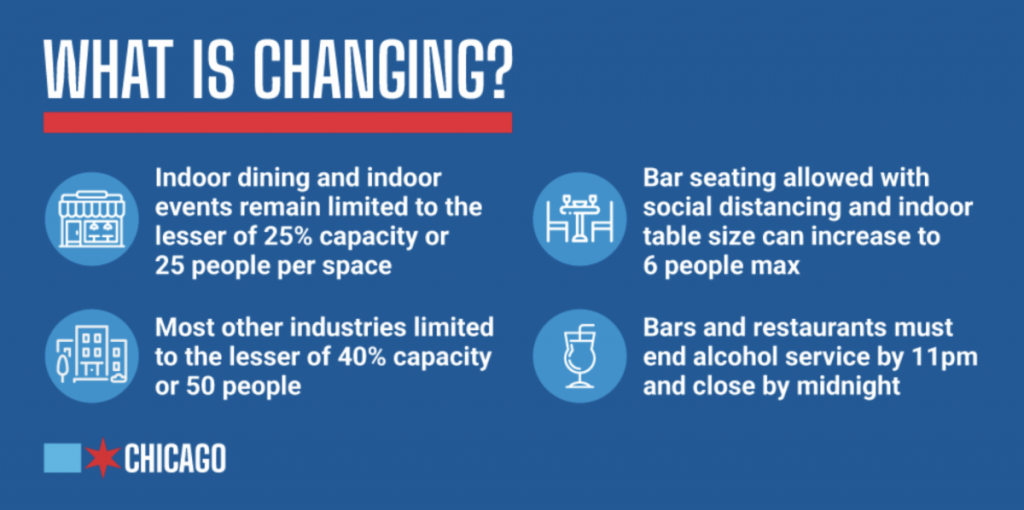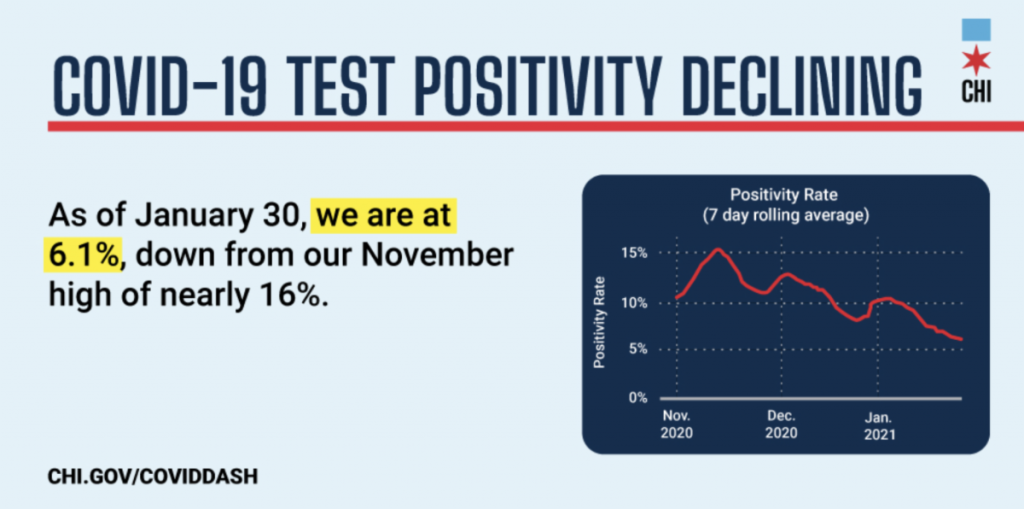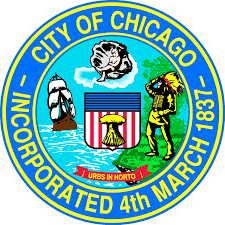
In the week of 2/15/2021, the City of Chicago increased capacity of indoor service at bars, restaurants and event venues to the lesser of 40% capacity or 50 people per room or floor. This increase is due to the significant progress that Chicago continues to make in the fight against the COVID-19 pandemic and is based on the framework for reopening that Chicago announced last week.
In order to ensure that the reopening does not endanger the progress made in recent weeks and months, all other existing regulations for businesses remain in place for now and are listed below:
- Indoor capacity restricted to the lesser of 40% or 50 people per room or floor
- Food must be available at all times in order to offer indoor service. This means that bars, taverns or breweries without a food license can operate indoors as long as they partner with a food establishment so that food is available to patrons at all times (e.g., making menus available and allowing delivery, allowing patrons to order from third-party delivery services).
- Outdoor service is allowed without capacity restrictions, which includes tables located within eight feet of walls that are at least 50% open, tents with at least 50% of their walls open, and single-party structures such as igloos or greenhouses
- Maximum of six patrons at indoor or outdoor tables
- Tables must be six feet apart
- Patrons can sit at bars, with six feet of social distancing between parties
- Face coverings must be worn at all times, except when patrons are seated and actively eating or drinking
- Patrons must be seated whenever they are eating or drinking
- Reservations are encouraged
- The sale of alcohol must end at 11pm, including alcohol sold for on-site consumption, delivery or carry out
- Establishments must close for on-site service at 12am
Health and Fitness Centers
- 40% capacity, with no more than 50 people in any one space
- Group classes of 15 or fewer can resume under the 40% capacity restriction
- Face coverings must be worn at all times
Indoor Recreation
- 40% capacity, with no more than 50 people in any one space
- Face coverings must be worn at all times
Movie Theaters and Performance Venues
- 40% capacity, with no more than 50 people in any one space
- Face coverings must be worn at all times
Retail Stores
- Grocery stores and pharmacies can operate at 50% capacity, all other stores at 40% capacity
- Face coverings must be worn at all times
- Alcohol sales from establishments with a Package Goods license must end at 9pm
Museums
- Can operate indoors at 25% capacity
- Face coverings must be worn at all times
Personal Services
- 40% capacity, with no more than 50 people in any one space
- Face coverings can be removed only for services that require their removal
Places of Worship
- 40% capacity, with no more than 50 people in any one space
- Special events capped at no more than 40% capacity or 50 people, while following indoor dining regulations
- Face coverings must be worn at all times
This cautious expansion of indoor service is possible due to Chicago recording fewer than 400 new COVID-19 cases per day, based on the seven-day rolling average, for each of the last three days. This means that all four metrics that Chicago is using to determine when and how to cautiously reopen have now moved into the “Moderate-Risk” level for at least three days, allowing for this expansion of indoor dining. The following metrics are being used to determine the process for continuing to ease COVID-19 regulations:
- COVID cases diagnosed per day: currently averaging 344, in the “Moderate-Risk” level
- COVID test positivity: currently averaging 3.6%, in the “Low-Risk” level
- Emergency Departments visits for COVID-like illness: currently averaging 62 per day, in the “Moderate-Risk” level
- ICU beds occupied by COVID patients: currently averaging 117, in the “Moderate-Risk” level
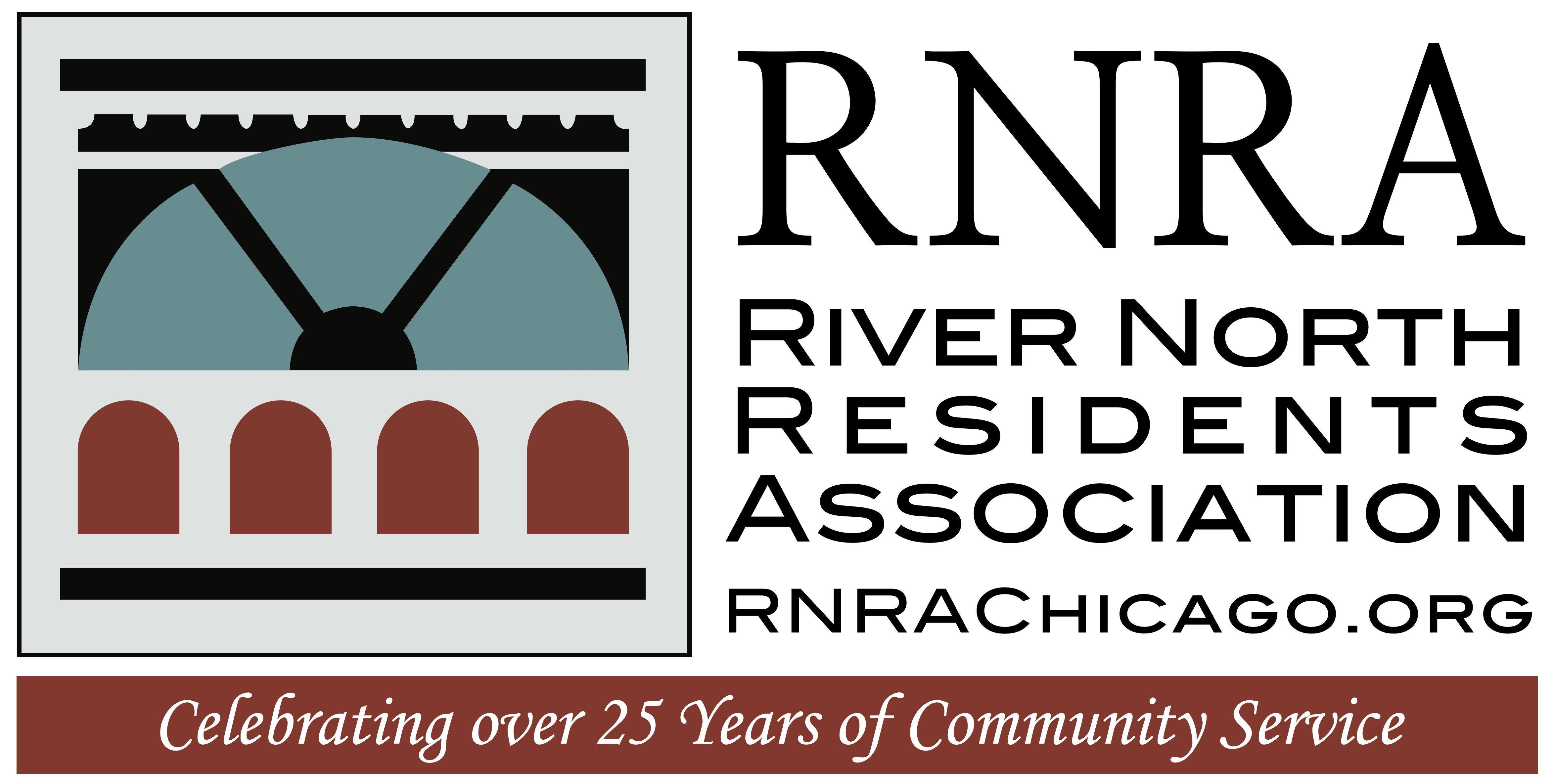

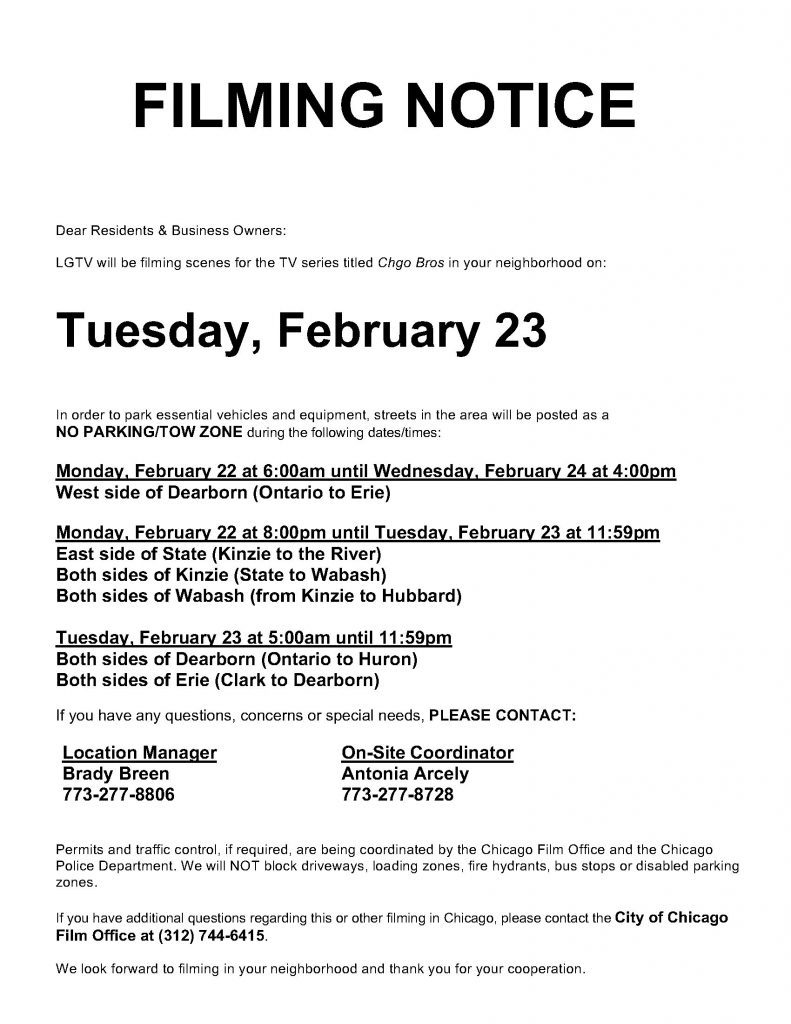
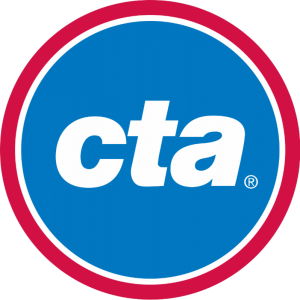



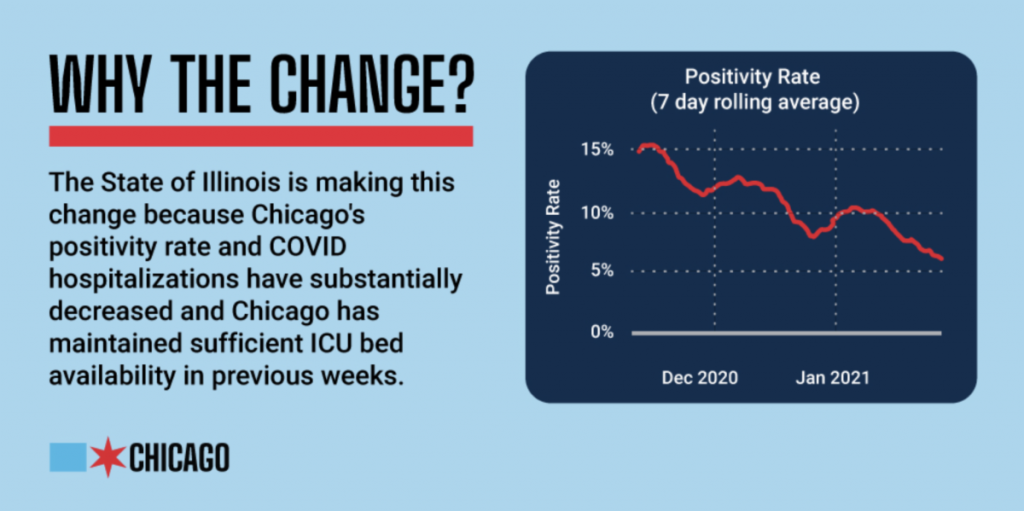 Please be advised that, as of January 31, Chicago has met the metrics set by the State of Illinois to move to Phase Four COVID-19 regulations. In order to avoid reversing the progress that the city has made in recent weeks, a number of regulations will remain in place in Chicago under Phase Four.
Please be advised that, as of January 31, Chicago has met the metrics set by the State of Illinois to move to Phase Four COVID-19 regulations. In order to avoid reversing the progress that the city has made in recent weeks, a number of regulations will remain in place in Chicago under Phase Four.